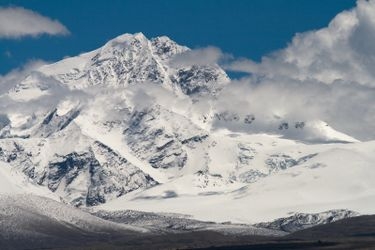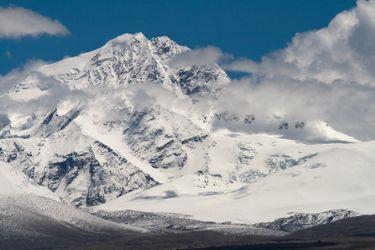Why climb in China
China is home to some of the world’s highest and most remote mountains, particularly in the Tibetan region. Shishapangma stands as China’s only 8,000-meter peak entirely within its borders, making it a unique and sought-after challenge for serious mountaineers. Known for its isolation and the mystique of the Tibetan Plateau, climbing in China offers a distinctive mountaineering experience that combines high-altitude challenges with the profound cultural and spiritual backdrop of the Himalayas. For mountaineers who seek a less-crowded 8,000-meter peak, Shishapangma represents an extraordinary adventure.
When to climb in China
- April and May
- September
The optimal time to climb Shishapangma is during the pre-monsoon (April to May) and post-monsoon (September to October) seasons. These months offer the most stable weather, with lower wind speeds and better visibility. Winter months should generally be avoided due to the extreme cold and high winds at altitude, which make conditions on Shishapangma significantly more challenging and dangerous. The monsoon season (June to August) brings heavy rains and unpredictable weather, which can make ascents hazardous.
Where to climb in China
Mountaineering in China is heavily focused in the Tibetan Himalayas, where Shishapangma dominates the landscape. Key aspects of this region include:
- Tibetan Himalayas: This region is home to Shishapangma, located near the border with Nepal. The Tibetan side of the Himalayas is known for its stark, high-altitude terrain and breathtaking vistas.
- Access to Remote Peaks: China provides climbers with access to less-traveled mountains, offering an alternative to the busier Nepalese routes. The isolation and difficulty of climbing in this region appeal to mountaineers seeking a more remote and raw experience.
Climbs in China
Most popular
The classic climbs in China:
All climbs in China
Shishapangma, standing at an impressive 8,027 meters, is the 14th highest mountain in the world and the only one entirely within China and Tibet. It's often considered a bit of a hidden gem among the 8,000-meter peaks, partly due to its remote location in the Tibetan Himalayas. Unlike some of its more famous brethren, it doesn't have the same level of commercialization, which is a blessing if you’re seeking solitude. The mountain offers a variety of routes, but the most commonly attempted is the North Ridge, starting from the base camp at around 5,000 meters. From there, climbers typically set up three more camps before the summit push.
The climb itself is more straightforward compared to the technical challenges of peaks like K2 or Annapurna, making it a popular choice for those looking to bag their first 8,000-meter summit. However, don’t let the relative simplicity fool you; the altitude and weather conditions can be unforgiving. The mountain has seen its share of mishaps, and the weather can turn quickly, so solid acclimatization and preparation are key. The final push to the summit involves navigating through snowfields and potential cornices, so timing and route-finding are crucial to a successful ascent.
In spring and autumn, the weather is usually more stable, making these the preferred seasons for an attempt. Keep in mind that even though Shishapangma might not require the technical prowess of the more treacherous peaks, the sheer altitude demands respect and careful planning. If you're considering an expedition, you’ll find that there are 19 guides offering climbs up Shishapangma, providing a range of options for those looking to undertake this magnificent journey.
Climb difficulties in China
How many of each difficulty grade can you find a route for.
| French Alpine | Difficulty description | Quantity |
|---|---|---|
| F | Easy. Suitable for beginners, minimal technical skills required. | 0 |
| PD | Not very difficult. Some technical skills required, with moderate exposure. | 1 |
| AD | Fairly difficult. Requires good technical skills and experience, with significant exposure. | 0 |
| D | Difficult. Requires advanced technical skills and experience, with high exposure. | 0 |
| TD | Very difficult. Requires very advanced technical skills, experience, and serious commitment. | 0 |
| ED | Extremely difficult. Requires exceptional technical skills, experience, and high commitment. | 0 |
Guides with trips in China
There are 19 guided trips listed for China. Trips range from $11,490 to $65,000, and average $28,038 per expedition.


